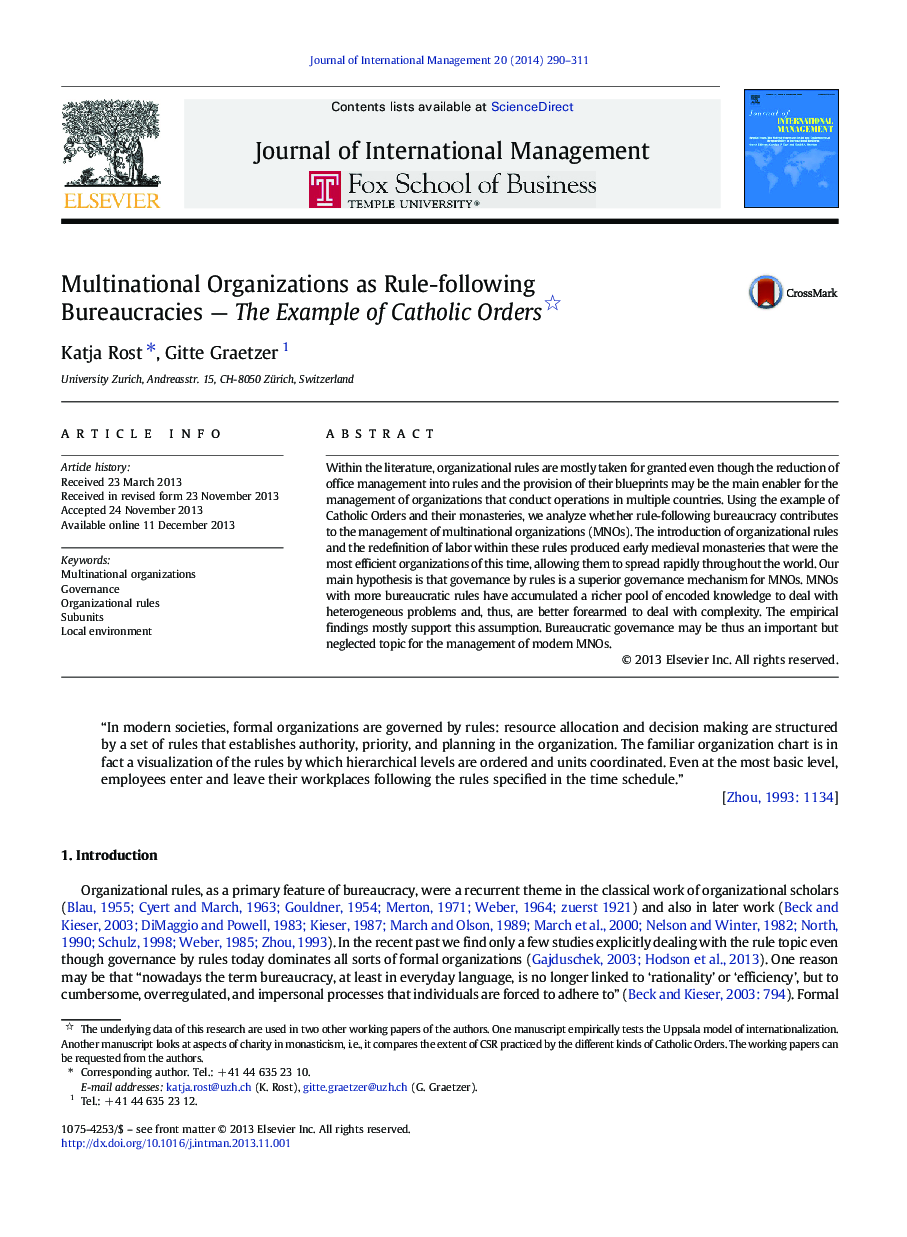| Article ID | Journal | Published Year | Pages | File Type |
|---|---|---|---|---|
| 1020295 | Journal of International Management | 2014 | 22 Pages |
Within the literature, organizational rules are mostly taken for granted even though the reduction of office management into rules and the provision of their blueprints may be the main enabler for the management of organizations that conduct operations in multiple countries. Using the example of Catholic Orders and their monasteries, we analyze whether rule-following bureaucracy contributes to the management of multinational organizations (MNOs). The introduction of organizational rules and the redefinition of labor within these rules produced early medieval monasteries that were the most efficient organizations of this time, allowing them to spread rapidly throughout the world. Our main hypothesis is that governance by rules is a superior governance mechanism for MNOs. MNOs with more bureaucratic rules have accumulated a richer pool of encoded knowledge to deal with heterogeneous problems and, thus, are better forearmed to deal with complexity. The empirical findings mostly support this assumption. Bureaucratic governance may be thus an important but neglected topic for the management of modern MNOs.
